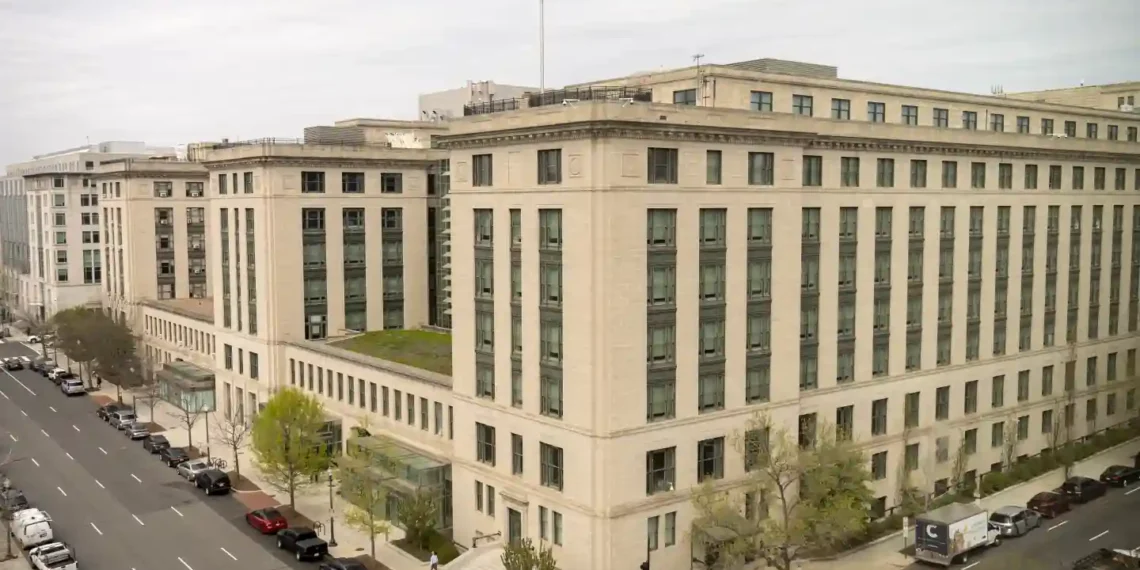Why Elon Musk’s Inner Circle Is Quietly Shaping a Key Federal Agency
Mysterious Starlink Devices, Tech Execs with Ties to Musk, and a Push to Reinvent Government Efficiency
On a quiet day at the General Services Administration (GSA) in Washington, D.C., an IT employee stumbled upon something peculiar on the agency’s rooftop — a small rectangular device with a wire leading into the administrator’s office. It turned out to be a Starlink transceiver, a satellite internet device linked to Elon Musk’s private network.
The discovery quickly raised alarms inside the federal agency — especially since Starlink isn’t generally authorized for use in sensitive government systems. The equipment triggered an internal investigation and a complaint to the GSA’s inspector general, fueling concerns over data privacy, security, and Musk’s growing influence inside the federal government.
But this strange tech find is just one piece of a bigger, more calculated picture.
The GSA — often overlooked — is central to how the U.S. government operates. It manages government real estate, federal contracts, and builds digital services used by millions. Now, it’s become a prime target for an aggressive cost-cutting campaign inspired by Musk’s obsession with efficiency.
At the heart of this transformation is a team filled with Musk-aligned figures:
- Stephen Ehikian, GSA’s acting administrator, is a Silicon Valley tech exec whose wife once worked for Musk’s social media platform X.
- A Tesla engineer now leads the agency’s tech division.
- Nicole Hollander, another Musk loyalist, is spearheading the effort to slash government real estate holdings. Her husband, Steve Davis, is reportedly leading the newly dubbed Department of Government Efficiency (DOGE).
“This agency is the backbone of federal operations,” Ehikian told employees in March, calling for expanded automation and AI to drive efficiency.
Under Hollander’s leadership, GSA has aggressively moved to cut leases and offload buildings. In one recent move, the agency released a list of hundreds of federal properties it aimed to sell — including the Justice Department’s headquarters and even a CIA facility. The move was met with immediate backlash and was later walked back.
Still, the sell-off hasn’t slowed. According to internal briefings:
- 680+ leases have been canceled
- 32 properties worth $185 million have been sold or listed
- $50 billion in federal contracts have been cut
Hollander’s approach mirrors her earlier work at X (formerly Twitter), where she was accused in a lawsuit of helping Musk cut costs by ignoring vendor payments, skirting building codes, and even living in company offices. At GSA, reports say she’s installed cots on the sixth floor — a familiar Musk-era tactic.
Despite her major role, Hollander rarely appears in meetings. Documents reveal her work is often scrubbed of attribution, replaced simply with “GSA leadership.” She’s been quietly meeting with real estate firms and tech consultants, fueling speculation about public-private partnerships or more radical restructuring.
Meanwhile, internal tensions are rising.
Thomas Shedd, a former Tesla employee now leading GSA’s tech arm, introduced a new Silicon Valley-style motto to the agency: “Move fast and make changes.”
His swift changes included:
- Seeking access to sensitive federal systems
- Proposing a centralized contract database to flag cuts
- Testing AI tools to speed up cost-cutting
One GSA employee even resigned rather than give Shedd access to secure platforms. Others raised flags about AI use and Starlink’s mysterious presence.
A GSA spokesperson confirmed the Starlink devices but claimed they weren’t linked to internal systems and posed no security breach. But for many longtime staff, the shift feels unsettling.
The GSA has long had an internal consulting arm focused on improving citizen services — helping build systems like online tax filing and digital passport renewals. Under the new regime, that team was dismantled.
Some fear the agency is gutting core capabilities that actually make government more efficient.
Amira Boland, a behavioral scientist who worked at GSA during the first Trump administration, said while cutting government waste is worthwhile, this approach feels “reckless.”
“There is certainly bureaucracy that needs to be eliminated,” she said. “But you have to know the stakes you’re playing with.”
As Elon Musk’s confidants quietly reshape the GSA from the inside out, questions loom over transparency, security, and the true cost of efficiency. Whether this Silicon Valley-style disruption leads to meaningful reform — or dangerous overreach — remains to be seen.
This article was rewritten by JournosNews.com based on verified reporting from trusted sources. The content has been independently reviewed, fact-checked, and edited for accuracy, neutrality, tone, and global readability in accordance with Google News and AdSense standards.
All opinions, quotes, or statements from contributors, experts, or sourced organizations do not necessarily reflect the views of JournosNews.com. JournosNews.com maintains full editorial independence from any external funders, sponsors, or organizations.
Stay informed with JournosNews.com — your trusted source for verified global reporting and in-depth analysis. Follow us on Google News, BlueSky, and X for real-time updates.














